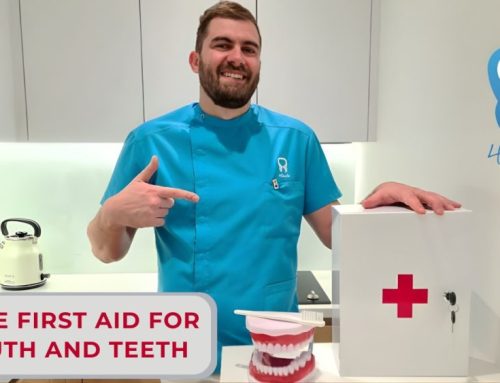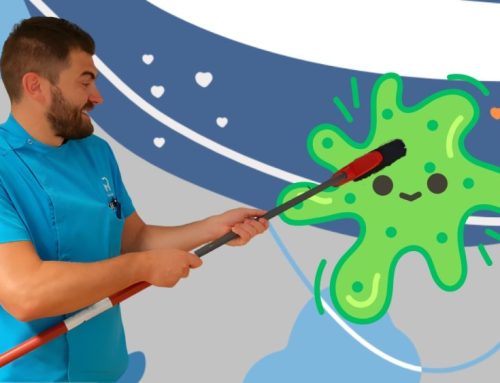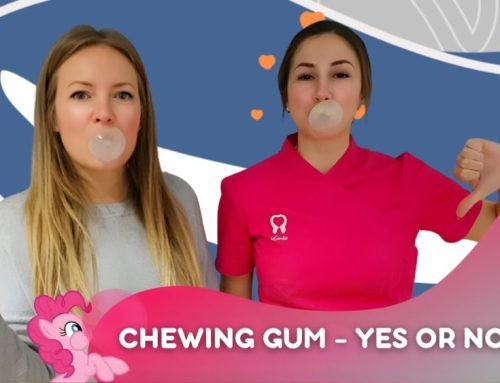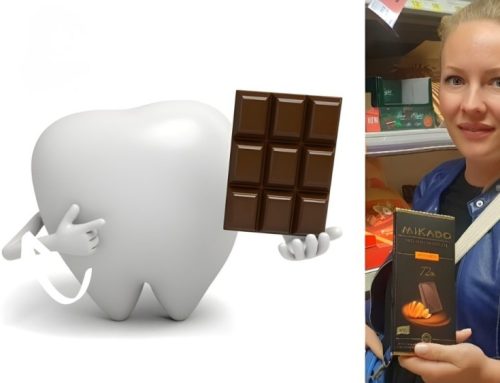“Dry mouth,” or xerostomia, is an uncomfortable condition that often occurs in women over the age of 40, mainly due to hormonal influences. In this week’s blog from the Dental Center 4Smile, you’ll learn about the causes of dry mouth symptoms, how it is treated, and how you can help yourself.
Saliva prevents tooth decay by neutralizing the acids produced by bacteria, limiting bacterial growth, and washing away food particles. Saliva also enhances taste, facilitates chewing and swallowing, and its enzymes help with digestion.
Reduced saliva and dry mouth can range from a mere nuisance to something that significantly affects your overall health, as well as the health of your teeth and gums, appetite, and enjoyment of food.
Dry mouth treatment depends on the cause.
Dry mouth is a symptom, not a disease
Dry mouth is a symptom, not a disease in itself. It is usually caused by medication but can also be related to various systemic conditions, chemotherapy, radiation to the head and neck, dehydration, hormonal changes, and certain activities such as tobacco use.
If you experience “dry mouth,” it’s important to address it as soon as possible. Maintaining an adequate amount of saliva in the mouth is essential for neutralizing acids from plaque, moistening food to aid swallowing, and controlling bacteria that lead to tooth decay and gum disease.
What causes dry mouth symptoms?
– Side effects of certain medications: Dry mouth is a common side effect of many prescription and over-the-counter medications, including those used to treat depression, anxiety, pain, allergies, and colds (antihistamines and decongestants), obesity, acne, epilepsy, high blood pressure (diuretics), diarrhea, nausea, psychotic disorders, urinary incontinence, asthma (certain bronchodilators), and Parkinson’s disease. Muscle relaxants and sedatives can also cause dry mouth.
– Side effects of certain diseases and infections: Dry mouth can be a side effect of medical conditions, including Sjögren’s syndrome, Alzheimer’s disease, diabetes, anemia, cystic fibrosis, rheumatoid arthritis, hypertension, Parkinson’s disease, stroke, and hormonal changes.
– Side effects of certain medical treatments: Damage to the salivary glands can reduce saliva production. Radiation to the head and neck and chemotherapy also reduce saliva output.
– Dehydration: Conditions leading to dehydration, such as fever, excessive sweating, vomiting, diarrhea, blood loss, and burns, can cause dry mouth.
– Lifestyle factors: Smoking or chewing tobacco can reduce saliva production and worsen dry mouth. Sleeping with your mouth open or breathing through your mouth can also contribute to the problem.
Consequences of dry mouth symptoms on oral health
– Bad breath (halitosis)
– Cracked lips
– Cracking of the oral mucosa or inner lining of the cheeks and lips, where the skin at the corners of the mouth may split or become sore
– Dysgeusia or taste disturbances
– Fungal infections in the mouth
– Painful tongue
– Increased thirst, especially at night
– Tongue inflammation, sores on the tongue
– More frequent gum disease
– Increased cavities and plaque buildup
– Difficulty swallowing and chewing, particularly with dry, crumbly foods such as crackers or cereals
– Problems with dentures, such as difficulty retaining them, sores on teeth, and the dentures sticking to the palate
– Salivary gland infections
– Sore throat
– Sticky saliva
– Thick saliva
Connection of dry mouth symptoms to the rest of the body
Depending on the cause, dry mouth syndrome may be linked to symptoms outside the mouth, including:
– Dry, itchy eyes
– Dry nose or throat
– Frequent coughing
– Reduced sense of smell
– Constipation
– Joint pain or stiffness
– Malaise
– Unexplained weight loss
– In women, frequent vaginal infections
To discover the cause of dry mouth, it’s best to consult your general practitioner. To prevent the oral health consequences of dry mouth symptoms, see your dentist in Zagreb, Ivan Antolković.
Dentist Ivan Antolković’s tips on dealing with dry mouth symptoms
– Eat juicier foods to stimulate saliva production.
– Thoroughly chew food before swallowing.
– Avoid crunchy foods that could injure the mouth, such as crackers or chips.
– Avoid acidic foods and drinks, such as sodas, citrus fruits, and citrus juices, to protect tooth enamel.
– Limit sweet foods and drinks or avoid them completely.
– Avoid mouthwashes with menthol flavor; these products tend to worsen dry mouth symptoms and increase the risk of cavities. It’s better to ask your dentist in Zagreb about menthol-free mouthwash.
– Avoid substances that increase mouth dryness, such as cigarettes, alcohol, caffeinated drinks, and spicy foods.
– Drink plenty of water, but avoid sipping slowly as this can wash away saliva. Carry a water bottle with you.
– Ask your general practitioner for other dietary suggestions, including a full list of foods and drinks to limit or avoid.
– Brush your teeth at least twice a day.
– Regularly use fluoride-containing products.
– Treat dry lips with petroleum jelly or another fatty balm like lanolin. A humidifier used at night in your bedroom may also help.
– Consult your pharmacist for products that can help moisturize the mouth, such as sprays, tablets, or pastes.
– Remove partial or full dentures while sleeping.
– Visit your dentist regularly to prevent tooth decay.
– Continue taking your medications, even if they are the cause. Your doctor may not be able to change or adjust the dose. Do not stop taking medications without your doctor’s knowledge and approval.
Love yourself and your body, pay attention to the messages your body sends through symptoms, and try to address the underlying cause of the discomfort as soon as possible.















